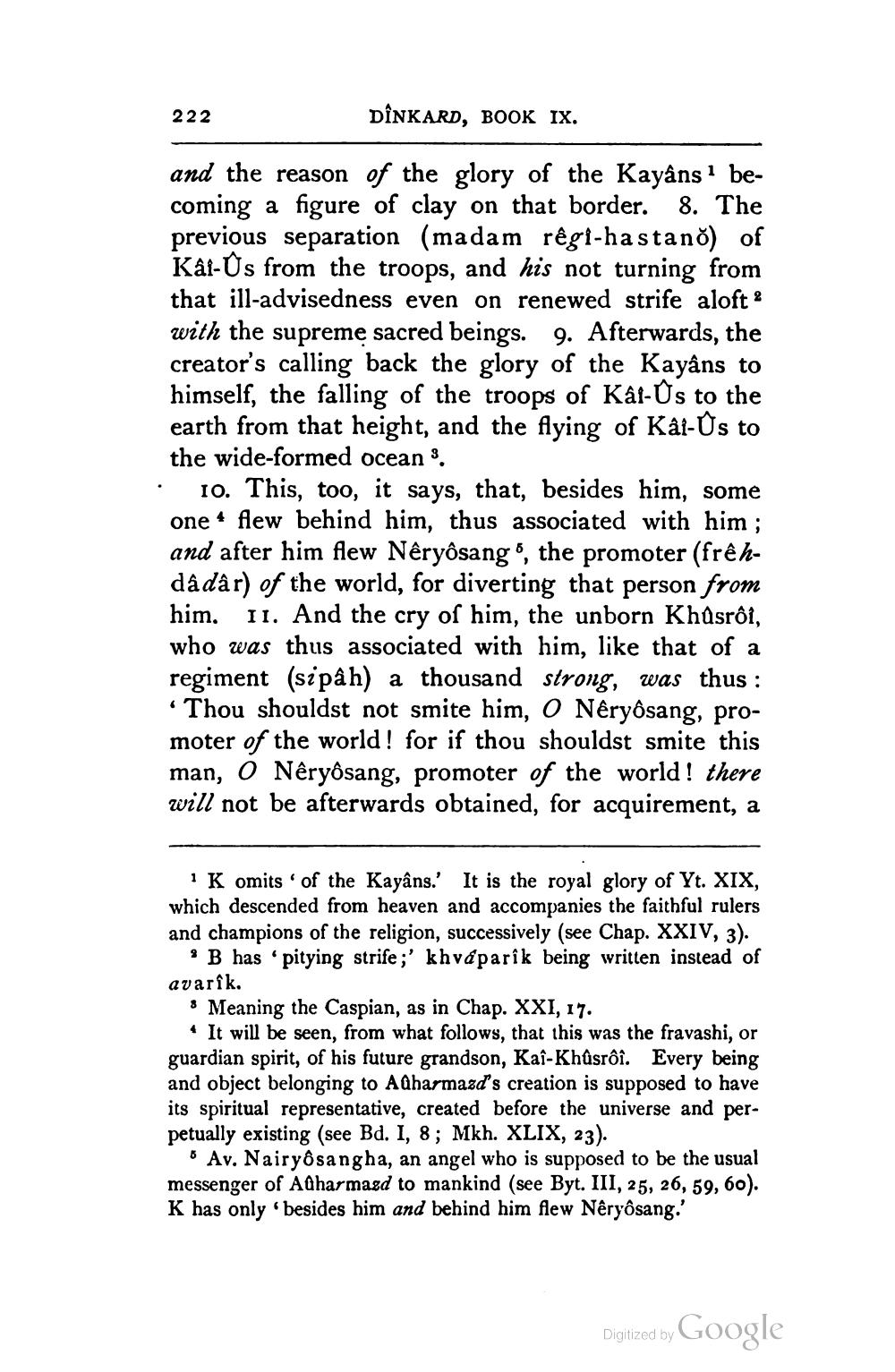________________
DINKARD, BOOK IX.
and the reason of the glory of the Kayâns1 becoming a figure of clay on that border. 8. The previous separation (madam rêgi-hastano) of Kât-Us from the troops, and his not turning from that ill-advisedness even on renewed strife aloft 2 with the supreme sacred beings. 9. Afterwards, the creator's calling back the glory of the Kayâns to himself, the falling of the troops of Kâl-Us to the earth from that height, and the flying of Kâi-Us to
the wide-formed ocean 3.
222
10. This, too, it says, that, besides him, some one flew behind him, thus associated with him; and after him flew Nêryôsang, the promoter (frêhdâdâr) of the world, for diverting that person from him. II. And the cry of him, the unborn Khûsrôi, who was thus associated with him, like that of a regiment (si pâh) a thousand strong, was thus:
Thou shouldst not smite him, O Nêryôsang, promoter of the world! for if thou shouldst smite this man, O Nêryôsang, promoter of the world! there will not be afterwards obtained, for acquirement, a
"
1 K omits of the Kayâns.' It is the royal glory of Yt. XIX, which descended from heaven and accompanies the faithful rulers and champions of the religion, successively (see Chap. XXIV, 3).
B has pitying strife;' khvaparîk being written instead of avarîk.
"Meaning the Caspian, as in Chap. XXI, 17.
* It will be seen, from what follows, that this was the fravashi, or guardian spirit, of his future grandson, Kaî-Khûsrôî. Every being and object belonging to Aûharmazd's creation is supposed to have its spiritual representative, created before the universe and perpetually existing (see Bd. I, 8; Mkh. XLIX, 23).
5 Av. Nairyôsangha, an angel who is supposed to be the usual messenger of Aûharmazd to mankind (see Byt. III, 25, 26, 59, 60). K has only besides him and behind him flew Nêryôsang.'
Digitized by
Google




